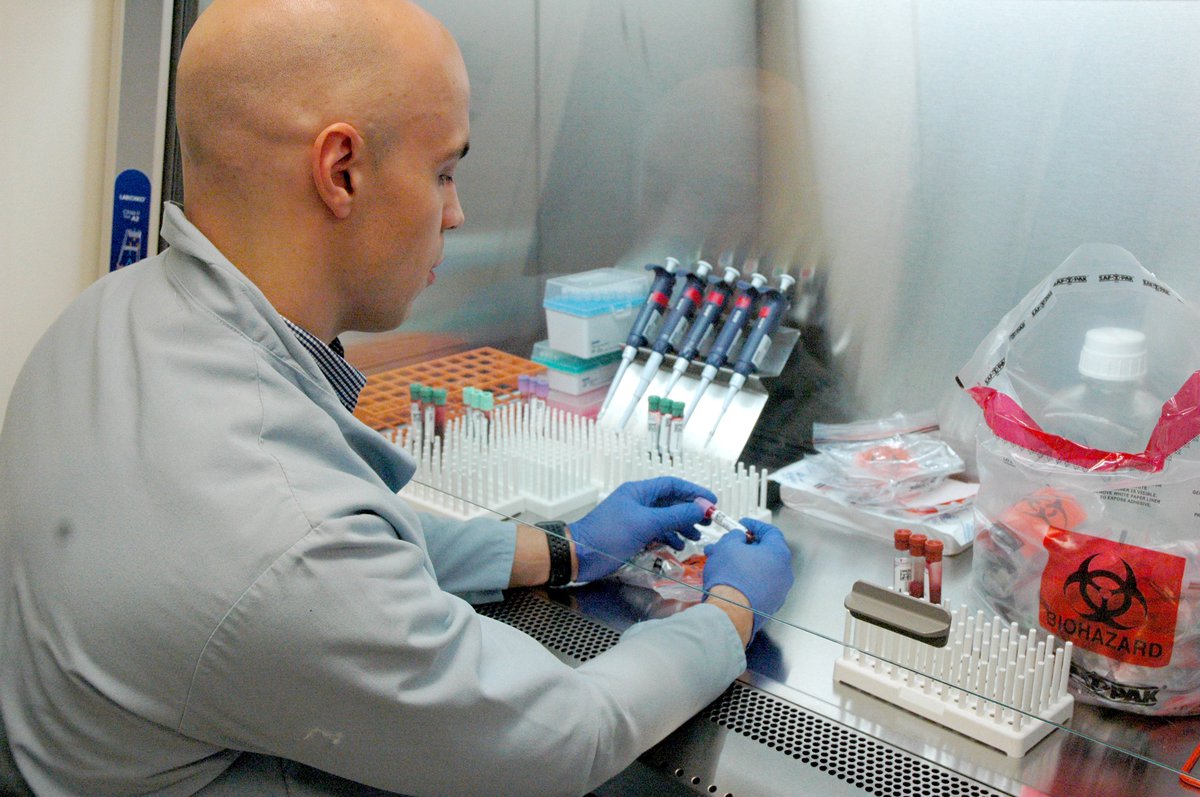
Diagnostics for Epidemic and Pandemic Preparedness
Accurate diagnostics are critical for rapid detection of epidemic pathogens and to inform effective public health responses to prevent or control disease.
Epidemic and pandemic preparedness also requires well-linked laboratory, disease surveillance, and health information systems capable of using diagnostic data for rapid and effective action. Strengthening these capacities at the country level is critical to improving national preparedness and response to epidemics while also bolstering regional and global health security.
Tools and resources to support a rapid response to COVID-19
PATH Diagnostics rapidly responded to fill diagnostic gaps during the COVID-19 pandemic with laboratory-based activities to support the development, availability, and sustainability of high-quality diagnostics. This includes:
- Developing and facilitating the Washington COVID-19 biorepository with over 20,000 clinical specimens available to diagnostics developers and manufacturers to use in developing and validating COVID-19 diagnostics.
- Developing COVID-19 Diagnostic Dashboards, seven interactive digital resources to support data-driven diagnostics procurement and purchasing decisions.
- Creating a COVID-19 benchmarking panel and conducting lab-based assessments of new commercial rapid diagnostic tests to verify performance claims and fit-for-purpose testing in international settings.
- Supporting WHO Emergency Use Listing through independent evaluation of COVID-19 diagnostics.
- Leading a global research collaboration to strengthen environmental surveillance to monitor the presence of SARS-CoV-2 in wastewater.
- Developing strategies to strengthen regional manufacturing capacity for quality-assured diagnostics.
- Providing technical support to government partners to enhance policy, procure materials for testing, and strengthen data systems for reporting COVID-19 test results.
- Strengthening the reporting and use of COVID diagnostic data to support disease surveillance and response in countries such as Vietnam and Senegal.
- Providing technical support to inform policy and procurement decisions on diagnostic tests by state governments in India.
- Strengthening genomic surveillance and sequencing capacity for COVID-19 variants.
Supporting the detection and eradication of Poliovirus
Polio is a highly infectious virus that spreads through infected sewage and continues to threaten some of the world’s most marginalized communities. Even after infection, symptoms are typically slow to appear, allowing poliovirus to circulate undetected in communities for weeks.
PATH Diagnostics supports the elimination of polio by:
- Collaborating with partners to develop a simple wastewater surveillance device, a bag-mediated filtration system to support early detection of outbreaks within communities to accelerate polio eradication in the remote and challenging regions where wild poliovirus is endemic or where access to vaccines is absent or limited.
- Supporting the development of a rapid diagnostic screening test to detect individuals with primary immunodeficiency (PID), a class of rare genetic disorders that present a challenge for eradicating the poliovirus.
Supporting the detection of Typhoid through standardization of environmental surveillance methods
Salmonella Typhi detection from sewage and contaminated surface waters is a critical tool to detect and address Typhoid circulating in a community.
PATH Diagnostics is:
- Supporting the evaluation of numerous environmental surveillance (ES) methods, including the bag-mediated filtration system deployed for Polio ES, in detecting typhi in wastewater to develop an evidence base that can support ES via harmonization of outputs.
- Develop a performance standard-based quality assurance/quality control (QA/QC) framework to enable broad interpretability of data collected via different methods within a uniform context.
Additional resources
- Peer-reviewed publications from PATH Diagnostics researchers and scientists in collaboration with external partners
- Recent press releases from PATH Diagnostics


